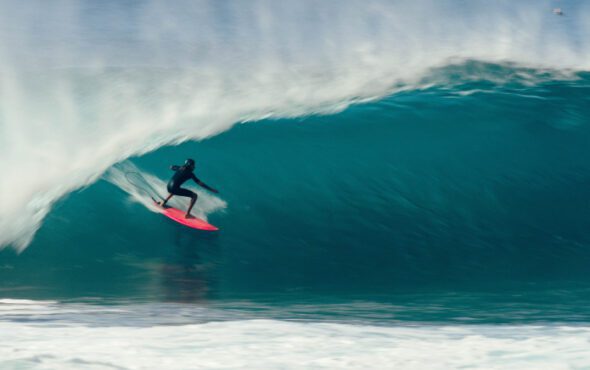
The World Surf League has announced a new policy for trans athletes.
On 3 February, the organisation revealed that it adopted the same set of regulations as the International Surfing Association (ISA) – which the latter first introduced in October 2022.
Under their new policy, trans female athletes are now required to maintain a testosterone level of less than “5 nmol/L (nanomoles per litre)” for at least 12 months to be eligible to compete.
“The WSL is working hard to balance equity and fairness, and it’s important for a policy to be in place,” said WSL Chief of Sport Jessi Miley-Dyer in a statement.
“We recognise that the policy may need to evolve over time as we get feedback and see new research in the field.”
In an additional statement to The Inertia, Miley-Dyer and WSL Chief Medical Officer Dr Allen MacKillop gave further insight into why they introduced the new policy.
“We’ve been in a lot of conversations with a lot of different stakeholder groups. And we recognise the ISA took a very deliberate approach,” Miley-Dyer explained.
Lastly, the chief of sport revealed that the WSL would not be administering tests for trans athletes, stating: “Athletes will arrange their own testing, then come to our chief medical officer to have a confidential conversation and show medical documentation.”
The WSL isn’t the only sporting organisation to introduce new policies for trans athletes.
Back in December, Sport New Zealand (SNZ) announced that trans athletes were able to participate in community sports without justifying their gender identity.
“An inclusive transgender policy allows individuals to take part as their self-determined gender and not as the sex they were assigned at birth,” SNZ said in a statement on 6 December.
“It does not ask people to prove or otherwise justify their gender, sex or gender identity.”
While SNZ has taken steps toward trans inclusion, other sporting organisations have restricted trans athletes from participating.
In June, FINA announced that trans women who transition after the age of 12 would effectively be banned from competing in swimming competitions.
A month later, the British Triathlon announced that trans athletes would be blocked from racing in the female category at an elite and grassroots level.
In addition to their restrictive new rules, both organisations revealed that they would be working on an “open category” for trans women to compete in.



